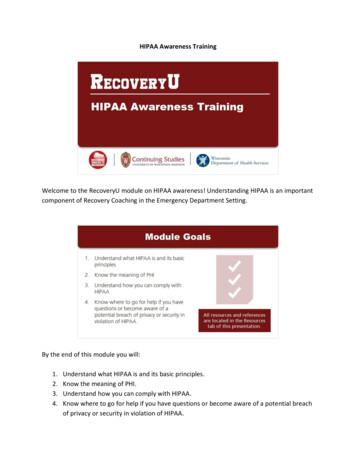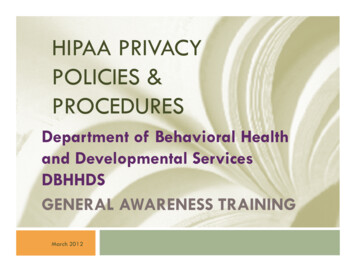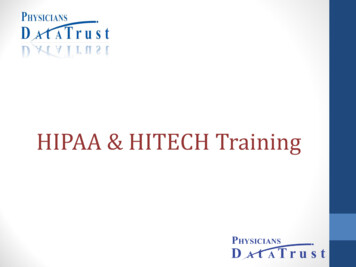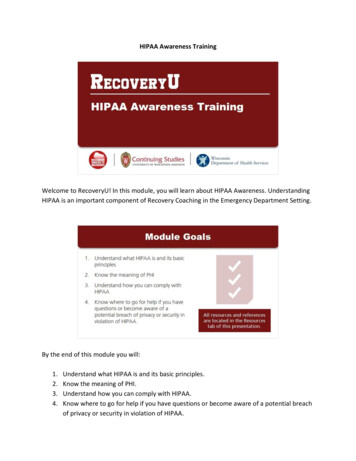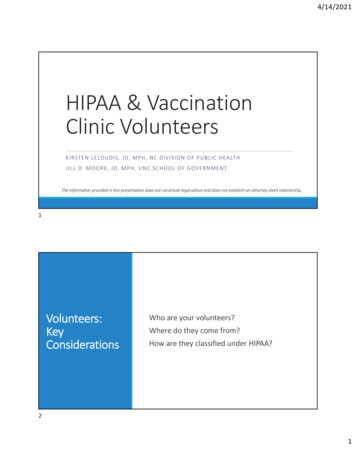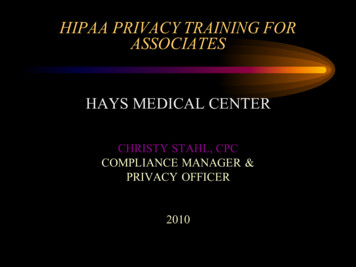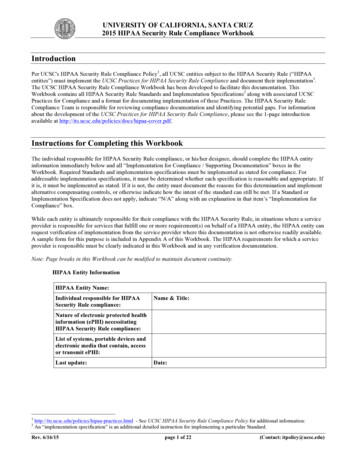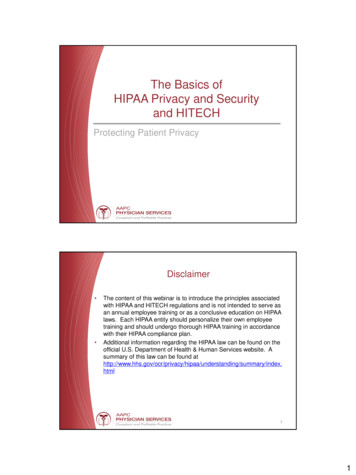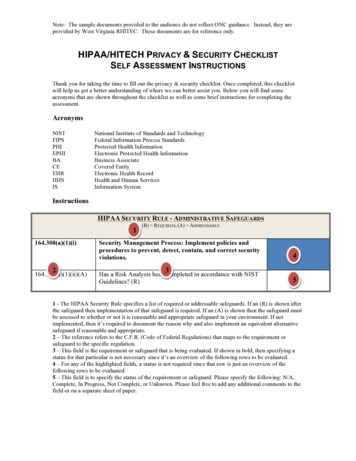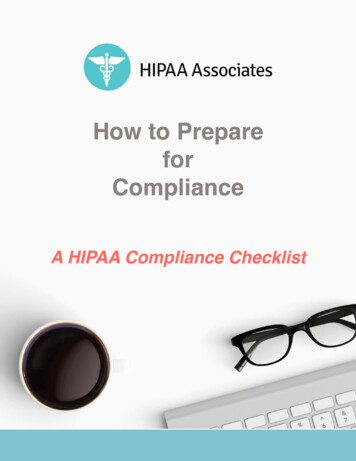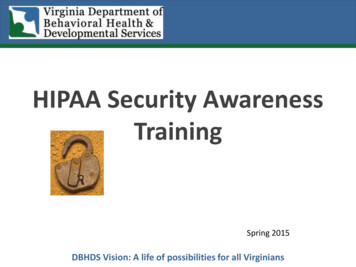
Transcription
HIPAA Security AwarenessTrainingSpring 2015DBHDS Vision: A life of possibilities for all Virginians
What is HIPAA?HIPAA means:HealthInsurancePortability andAccountabilityActIt is a set of regulations issued by the United StatesDepartment of Health and Human Services to helpinsure the privacy and security of individualidentifiable health information.Slide 2
Please Note:This overview is not meant to be comprehensive.You must: Review DBHDS complete policies andprocedures referenced on the last slide. Consult with DBHDS agency Privacy Officerfor clarification or guidance on specific HIPAArelated issues.When in doubt – ASK!
Federal Health Information Privacy & SecurityProvisions Include:Privacy Rules – effective since April 14, 2003 Keep protected health information (PHI)confidential, and Discipline individuals who fail to keep patientinformation confidential.Security Rules – effective since April 21, 2005 Ensure the confidentiality, integrity andavailability of all electronic protected healthinformation, and Ensure compliance by the workforce.
2013 Omnibus Rule Effective date March 26, 2013 Provides the final modifications to the HIPAAPrivacy, Security and Enforcement rulesmandated by the Health Information Technologyfor Economic and Clinical Health (HITECH).Slide 5
Why is HIPAA Security Training Mandatory? Because you have access to computer equipment orsoftware containing protected health information (PHI),the HIPAA Security Rule requires that you participate inHIPAA Security Awareness training to learn the basicprocedures you must follow to protect that information.Slide 6
Importance of Security TrainingFollowing our electronic security procedures isimportant because the procedures help to protect theinformation's :– Confidentiality (only the right people see it)– Integrity (the information is what it is suppose to be –there have been no unauthorized alterations)– Availability (the right people see it when it’s needed)Slide 7
HIPAA Privacy Rules HIPAAPrivacy Rule sets standards for securing all PHI,Including ePHI.Electronic PHI (ePHI) is:– Electronically Created– Electronically Received– “At rest” or maintained in a storage device such as a computer harddrive, disk, CD or tape– “In Transit” via the internet, dial-up lines, etc. For example, email,secure file transfer protocol (sFTP), and Electronic Data Interchange(EDI). HIPAASecurity Rule establishes standards forsafeguarding ePHI only.Slide 8
Objectives of HIPAA Security Rule Procedures implemented to comply with HIPAA SecurityRule must be reviewed and modified, as needed, toensure the reasonable and appropriate protection ofePHI over time. HIPAA Security compliance is an on-going effort thatmust be constantly monitored.Slide 9
Basic Computer Security Rules To Remember Log Out off any application or software when done. Turn off your computer when done. Lock your computer when you leave your desk(Control-Alt-Delete) Lock up all files, papers, drawers, desks, doors. Ensure your computer automatically goes into a “sleep”mode after a certain amount of inactivity. Make Security a part of your everyday routine!Slide 10
Rules to Remember Continued Position computer monitor away from doors andwindows. Protect your computer by not changing any settings.– Your workstation has been setup and configured for youruse and should not be altered.– Changing settings can cause the workstation to becomeunstable.Slide 11
Rules to Remember Continued Never share your password. Change your password if you think someone knows it. Do Not post your password in your work area (i.e. on asticky note). Do not write password down and keep in work area (i.e.under key board, or on bulletin board).Slide 12
Final Thoughts on Security You are responsible for reporting any security problemsthat you encounter or observe to the DBHDSInformation Security Officer. Email:DBHDSInformationSecurity@DBHDS.Virginia.Gov Complete the security awareness training form andreturn it with your account request. Always keep in mind that when in doubt – ASK!Slide 19
Why is HIPAA Security Training Mandatory? Because you have access to computer equipment or software containing protected health information (PHI), the HIPAA Security Rule requires that you participate in HIPAA Security Awareness training to learn the basic procedures you must follow to protect that information.
